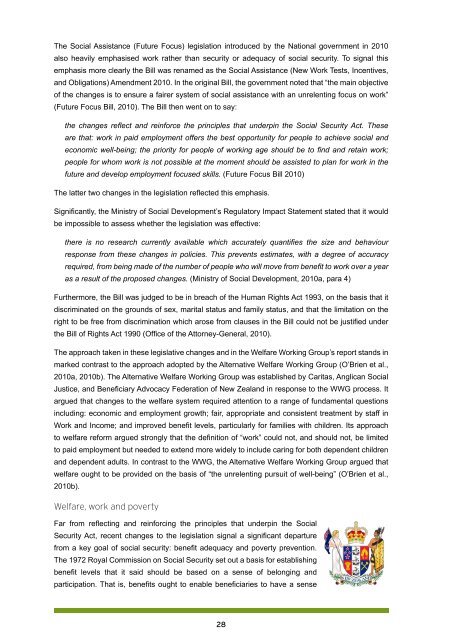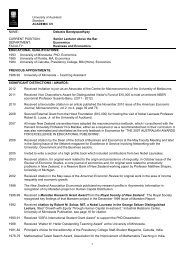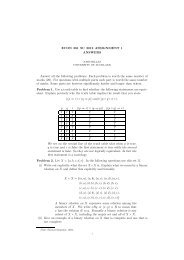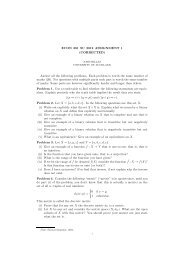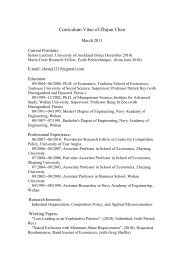Left Further Behind - Child Poverty Action Group
Left Further Behind - Child Poverty Action Group
Left Further Behind - Child Poverty Action Group
Create successful ePaper yourself
Turn your PDF publications into a flip-book with our unique Google optimized e-Paper software.
The Social Assistance (Future Focus) legislation introduced by the National government in 2010<br />
also heavily emphasised work rather than security or adequacy of social security. To signal this<br />
emphasis more clearly the Bill was renamed as the Social Assistance (New Work Tests, Incentives,<br />
and Obligations) Amendment 2010. In the original Bill, the government noted that “the main objective<br />
of the changes is to ensure a fairer system of social assistance with an unrelenting focus on work”<br />
(Future Focus Bill, 2010). The Bill then went on to say:<br />
the changes reflect and reinforce the principles that underpin the Social Security Act. These<br />
are that: work in paid employment offers the best opportunity for people to achieve social and<br />
economic well-being; the priority for people of working age should be to find and retain work;<br />
people for whom work is not possible at the moment should be assisted to plan for work in the<br />
future and develop employment focused skills. (Future Focus Bill 2010)<br />
The latter two changes in the legislation reflected this emphasis.<br />
Significantly, the Ministry of Social Development’s Regulatory Impact Statement stated that it would<br />
be impossible to assess whether the legislation was effective:<br />
there is no research currently available which accurately quantifies the size and behaviour<br />
response from these changes in policies. This prevents estimates, with a degree of accuracy<br />
required, from being made of the number of people who will move from benefit to work over a year<br />
as a result of the proposed changes. (Ministry of Social Development, 2010a, para 4)<br />
<strong>Further</strong>more, the Bill was judged to be in breach of the Human Rights Act 1993, on the basis that it<br />
discriminated on the grounds of sex, marital status and family status, and that the limitation on the<br />
right to be free from discrimination which arose from clauses in the Bill could not be justified under<br />
the Bill of Rights Act 1990 (Office of the Attorney-General, 2010).<br />
The approach taken in these legislative changes and in the Welfare Working <strong>Group</strong>’s report stands in<br />
marked contrast to the approach adopted by the Alternative Welfare Working <strong>Group</strong> (O’Brien et al.,<br />
2010a, 2010b). The Alternative Welfare Working <strong>Group</strong> was established by Caritas, Anglican Social<br />
Justice, and Beneficiary Advocacy Federation of New Zealand in response to the WWG process. It<br />
argued that changes to the welfare system required attention to a range of fundamental questions<br />
including: economic and employment growth; fair, appropriate and consistent treatment by staff in<br />
Work and Income; and improved benefit levels, particularly for families with children. Its approach<br />
to welfare reform argued strongly that the definition of “work” could not, and should not, be limited<br />
to paid employment but needed to extend more widely to include caring for both dependent children<br />
and dependent adults. In contrast to the WWG, the Alternative Welfare Working <strong>Group</strong> argued that<br />
welfare ought to be provided on the basis of “the unrelenting pursuit of well-being” (O’Brien et al.,<br />
2010b).<br />
Welfare, work and poverty<br />
Far from reflecting and reinforcing the principles that underpin the Social<br />
Security Act, recent changes to the legislation signal a significant departure<br />
from a key goal of social security: benefit adequacy and poverty prevention.<br />
The 1972 Royal Commission on Social Security set out a basis for establishing<br />
benefit levels that it said should be based on a sense of belonging and<br />
participation. That is, benefits ought to enable beneficiaries to have a sense<br />
28


